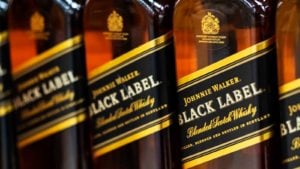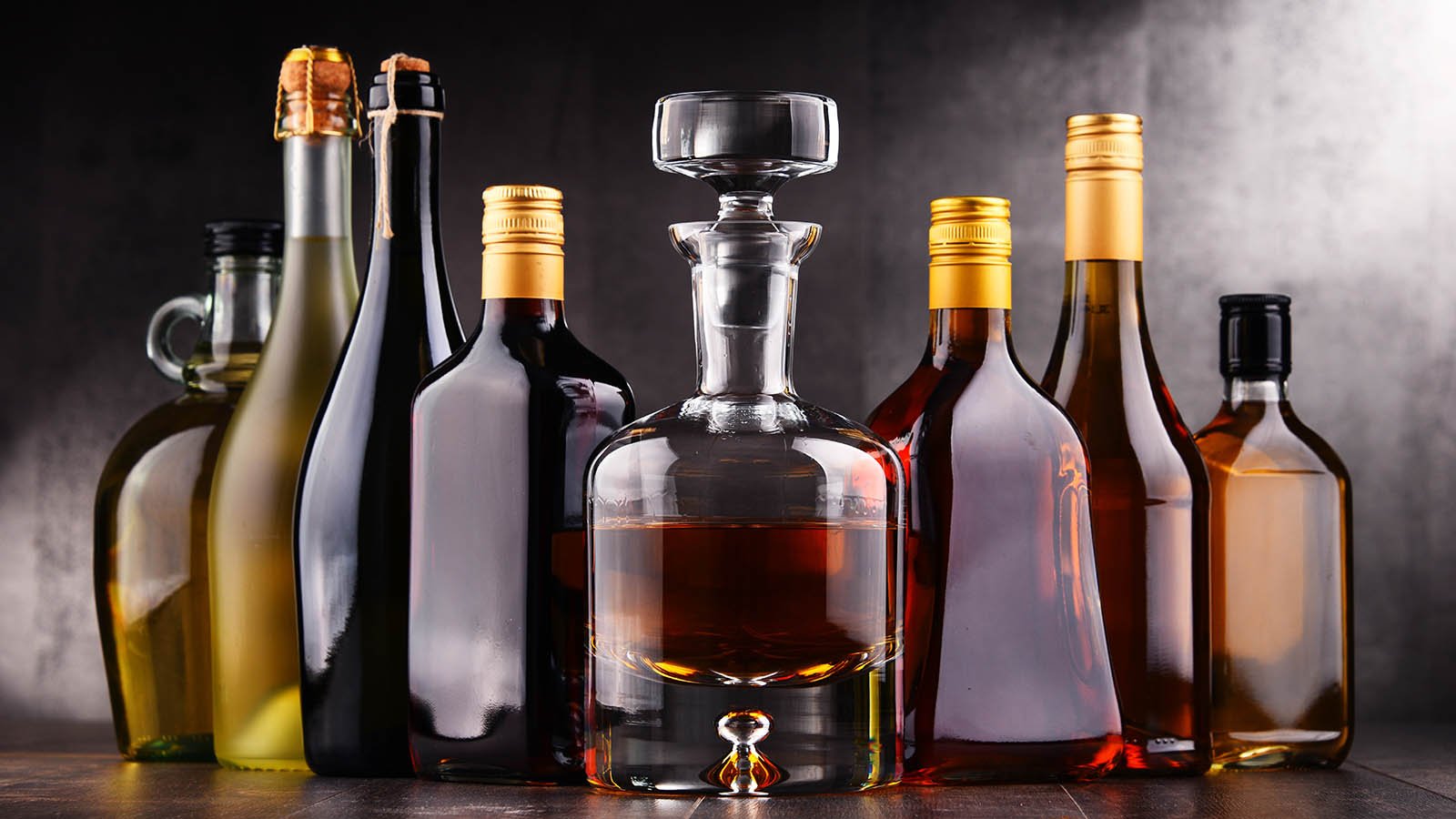Many economic sectors have seen revenue and profits collapse over the course of 2020, due to the coronavirus pandemic. Industries such as energy, restaurants and retailers are among the hardest-hit areas of the economy. But not all industries are struggling – alcohol stocks continue to generate strong profits and steady growth throughout the year.
The reason is because alcohol stocks have seen their demand remain intact (or even increase) as consumers spend more time at home. This has caused a pantry-stocking phenomenon, meaning alcohol stocks have been among the rare winners of the pandemic.
The following alcohol stocks performed very well to start 2020, thanks to their strong brands and global competitive advantages. Investors were rewarded for their patience with strong stock price gains, as well as rising dividends from these three high-quality dividend stocks.
Alcohol Stocks: Diageo PLC (DEO)

Diageo is one of the largest beverage companies in the world, with a market capitalization near $100 billion. It is also one of the world’s oldest companies, tracing its history all the way back to the 1600s. Diageo is a true alcohol conglomerate, with a huge brand portfolio. Diageo owns 20 of the world’s top 100 spirits brands. A few of its core brands include Johnnie Walker, Smirnoff, Captain Morgan, Baileys, Tanqueray, Guinness, Crown Royal, and Ketel One.
Diageo was not immune to the coronavirus pandemic, and its financial results weakened in the most recent fiscal year. Global organic net sales declined 8% for fiscal 2020. But on the positive side, Diageo notched organic growth in North America for the fiscal year. This is important, as North America is the company’s biggest market at 39% of total revenue.
While the recently-concluded fiscal year was widely viewed as a disappointment for the company, Diageo has a bright long-term future, which puts it on this list of reliable alcohol stocks. One big reason is its entrenched position in under-developed nations around the world. The emerging markets are more important for Diageo, which is a headwind in the short-term, but is likely to be a long-term tailwind.
Emerging markets are among the fastest-growing economies in the world. For example, Africa, Latin America & the Caribbean, and Asia-Pacific represent nearly 40% of company revenue. When the global economy returns to normal, these markets should once again return to higher growth rates.
Diageo pays a semi-annual dividend, meaning two payments per year. It typically pays an interim dividend in April and a final dividend in October. The approximate split between the two payments is 40/60. For 2020, the annual dividend payout came to $3.55 in U.S. dollars, resulting in a dividend yield of 2.2%. The 2020 dividend was increased by approximately 3.5% from the 2019 payout, making Diageo stock a mix of dividend yield and growth.
Constellation Brands (STZ)

Constellation Brands produces and distributes beer, wine, and spirits. It is a highly diversified company with more than 100 brands in its portfolio, including beer brands Corona, wine brands including Robert Mondavi and Clos du Bois, and liquor brands such as Svedka, Casa Noble and High West. Constellation Brands has also branched into marijuana, an adjacent category that could represent a major new growth avenue. It has invested $4 billion in Canadian marijuana producer Canopy Growth (NASDAQ:CGC) for a nearly 40% ownership stake.
Canopy Growth has held the company back in recent periods, although it could still represent a long-term growth catalyst. In the meantime, Constellation Brands continues to remain highly profitable, thanks to its core alcohol brands. In the most recent quarter, revenue of $2.26 billion represented a mild decline of 3.6% from the previous quarter. However, earnings-per-share totaled $2.76, a 1.5% increase from the same quarter last year. And, excluding a loss from Canopy Growth, EPS would have equaled $2.91 for the quarter for a 7% growth rate.
Constellation is expected to continue generating growth in the years ahead, largely due to its premiumization strategy. In the most recent quarter, Constellation Brands saw at least 16% dollar-sales growth from its higher-end beer, spirits, and wine, compared with much lower growth from its lower-end brands. It is also using acquisitions to boost its growth in craft beer, such as the acquisitions of Funky Buddha and Four Corners Brewing in recent years.
Constellation Brands has a 1.5% dividend, along with a high dividend growth rate. In the past five years, the company’s compound annual dividend growth rate was 19%. This makes Constellation Brands an attractive pick for dividend growth investors and second on the list of alcohol stocks.
Brown-Forman (BF-B)
Brown-Forman has a long history of growth, thanks to its core brand Jack Daniel’s. The company has a broader spirits portfolio including other top-tier brands like Herradura, Woodford Reserve, El Jimador and Finlandia. Brown-Forman does not have quite as large a brand portfolio as Diageo and Constellation Brands. But this has not hurt the company; instead, it operates a leaner and more focused business, which has served the company well over the years.
Brown-Forman has the longest streak of annual dividend increases. The company recently declared a new quarterly dividend of 17.95 cents per share, a 3% increase from the prior quarterly dividend rate. This marks the 37th consecutive year of a dividend increase for Brown-Forman, which makes it a member of the Dividend Aristocrats list. The Dividend Aristocrats are a group of just 65 stocks in the S&P 500 Index that raised their dividends for 25-plus consecutive years. In all, Brown-Forman has paid dividends for the past 76 years.
Brown-Forman continues to perform well in 2020. In the most recent quarter, revenues of $750 million were down 2% year-over-year, but did beat analyst estimates by $62 million. However, excluding currency impacts, underlying organic sales increased 3%. Brown-Forman is seeing broad-based growth across its product line and geographic markets. Last quarter, currency-neutral sales in the United States and developed international markets grew by 9% and 12%, respectively.
The Jack Daniel’s family of brands grew underlying sales by 3%, while Brown-Forman realized even stronger growth from its premium brands. For example, premium bourbons grew underlying sales by 18% last quarter, driven by 14% growth for Woodford Reserve and continued high double-digit growth for Old Forester. Meanwhile, Brown-Forman is seeing strong growth in tequila as well, with 16% growth across the tequila portfolio driven by New Mix in Mexico and also from el Jimador.
Earnings-per-share totaled 67 cents for the first quarter, again beating consensus by 37 cents. The quarter’s profits were up 73%, although adjusted earnings-per-share were up only marginally from the same quarter last year. The company’s sustained growth and low payout ratio should lead to many more years of dividend growth. For the full fiscal year, Brown-Forman is expected to have a dividend payout ratio below 40%, indicating a highly secure dividend. The current dividend yield of 0.9% is a fairly low yield, but Brown-Forman is on this list of alcohol stocks since it makes up for the low yield with rapid dividend growth.
On the date of publication, Bob Ciura did not have (either directly or indirectly) any positions in the securities mentioned in this article.
Bob Ciura has worked at Sure Dividend since 2016. He oversees all content for Sure Dividend and its partner sites. Prior to joining Sure Dividend, Bob was an independent equity analyst. His articles have been published on major financial websites such as The Motley Fool, Seeking Alpha, Business Insider and more. Bob received a bachelor’s degree in Finance from DePaul University and an MBA with a concentration in investments from the University of Notre Dame.
